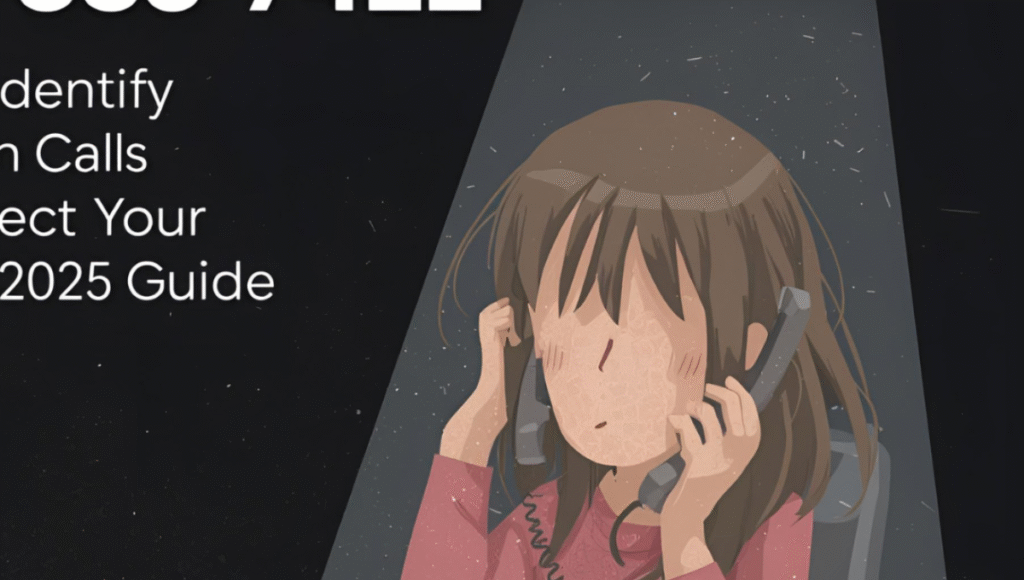Introduction
If you’ve ever received a call from 916-483-7422 or any unfamiliar number, you’re not alone. Unknown calls have become a common issue worldwide — sometimes they’re harmless, but often they’re linked to telemarketing, robocalls, or scams.
In today’s digital world, understanding who’s calling and why is an important part of personal safety. This guide will show you how to check unknown numbers, recognize scam patterns, and protect your data — so you never have to wonder again, “Who’s number is this?”Why You Might Get Calls From Unknown Numbers
There are many reasons you might receive calls from numbers you don’t recognize. Some are legitimate, others are not. Here are the most common:
-
Telemarketing or Survey Calls – Companies that use call lists to promote products or conduct surveys.
-
Scam or Robocalls – Automated systems used by scammers to trick people into sharing personal or financial information.
-
Wrong Numbers – Simple dialing mistakes are still common.
-
Business Follow-ups – Sometimes banks, delivery services, or support teams call using numbers not saved in your phone.
-
Spoofed Calls – Scammers can disguise their real number to make it look local or trustworthy (like 916-483-7422).
Understanding the 916 Area Code
The 916 area code is registered to Sacramento, California, and nearby areas such as Roseville, Elk Grove, and Citrus Heights.
So, if you’re getting a call from a number like 916-483-7422, it likely originates from that region — though scammers can “spoof” any area code to appear local.
Spoofing tricks people into answering because the call looks familiar, increasing the chance you’ll pick up.
How to Find Out Who’s Calling (Safely)
If you want to identify who’s behind a specific number like 916-483-7422, there are several safe and legal methods:
-
Use a Reverse Phone Lookup Service
Websites such as TrueCaller, SpyDialer, Whitepages, or NumLookup let you search numbers and see if they’re reported as spam, business, or private. -
Check Online Forums
Many people report suspicious or annoying numbers on public forums like 800notes.com or WhoCallsMe.com. -
Contact Your Phone Carrier
Major carriers such as Verizon, AT&T, and T-Mobile can trace patterns of robocalls and help block repeat offenders. -
Use Built-in Phone Protection Apps
Smartphones now include call identification features:-
iPhone: Silence Unknown Callers
-
Android: Google Call Screen or Smart ID
-
-
Never Call Back Random Numbers
Some scam numbers charge international or premium fees if you call them back. Always verify first.
Common Scams to Watch For
If you get repeated or suspicious calls from numbers like 916-483-7422, it could be part of one of these common scams:
-
IRS or Tax Scams – Fraudsters pretending to be government officials demanding payment.
-
Lottery or Prize Scams – Promises of winnings that require you to pay a “processing fee.”
-
Tech Support Scams – Callers claiming your computer has a virus and requesting remote access.
-
Bank or Credit Card Fraud Alerts – Fake alerts trying to gather account details.
-
Charity Scams – Imitating nonprofits, especially after disasters, asking for donations.
Never share personal or financial details unless you are 100% certain who’s calling.
How to Protect Yourself from Unwanted Calls
-
Register Your Number on the Do Not Call List
In the U.S., visit donotcall.gov to reduce legitimate telemarketing calls. -
Block Numbers on Your Phone
Both iPhone and Android allow you to block specific numbers instantly. -
Install Call-Blocking Apps
Apps like Hiya, Robokiller, and Nomorobo can automatically detect and block spam calls. -
Report Suspicious Numbers
You can file complaints with the Federal Trade Commission (FTC) or your country’s consumer protection agency. -
Be Skeptical of Unknown Texts or Voicemails
Scammers may also send links in texts. Never click links from unfamiliar numbers.
What To Do If You Answered a Scam Call
If you accidentally answered and shared information:
-
Hang up immediately if the caller pressures you.
-
Contact your bank if you shared financial data.
-
Change your passwords if you gave out personal details.
-
Report the call to local authorities or the FTC.
Taking quick action can prevent identity theft or fraud.
Technology’s Role in Combating Scam Calls
Telecom companies and regulators are using AI-based filters and STIR/SHAKEN technology to authenticate real calls and block spoofed ones. These systems verify if a number is legitimate before connecting it.
Although not perfect, they’ve already reduced millions of spam calls across the U.S.
When to Seek Professional Help
If you’re receiving threats, harassment, or repeated scam calls, it may be time to get official help.
-
File a police report if calls become threatening.
-
Contact your phone provider’s fraud department.
-
Use a lawyer or cybersecurity consultant for serious privacy issues.
Conclusion
Getting calls from numbers like 916-483-7422 can be unsettling, but understanding how to trace, verify, and block them empowers you to stay safe.

